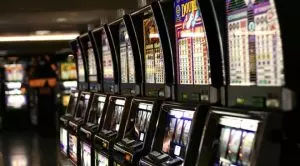 The National Gambling Helpline provided some new figures revealing that the number of problem gamblers who have been calling the helpline has increased by over 30%.
The National Gambling Helpline provided some new figures revealing that the number of problem gamblers who have been calling the helpline has increased by over 30%.
New data revealed by the UK-wide helpline service showed that a total of 29,889 calls were received by National Gambling Helpline workers in 2017/2018. The figure represented an increase from the 22,875 calls received only several years ago, in the 2013/2014. As explained by the Chief Executive Officer of the National Gambling Helpline, Anna Hemmings, shared that approximately two-thirds of the calls received by the helpline were regarding financial problems, while about half of the people who called said they were concerned about their mental health.
Figures suggest that the number of people who are addicted to gambling is rising. The National Gambling Helpline says there were 30,000 calls made last year by people needing support. pic.twitter.com/euZccCGLDh
— BBC Cumbria (@BBC_Cumbria) October 24, 2018
Following the newly-announced figures, a charity created by friends of families of problem gamblers who committed suicide due to their addictions commented that more needed to be done in order for public awareness for the possible gambling-related harm to be raised. The charity also called for further measures in terms of gambling regulation across the country.
The major gambling regulatory body in the country, the UK Gambling Commission (UKGC), shared that it has already been working in collaboration with the sector in order to make sure that more vulnerable individuals who are at risk of gambling-related harm are well protected against possible negative consequences which could occur as a result of compulsive gambling.
Stricter Measures Should Be Taken against Gambling-Related Harm
 For the time being, it is the independent national charity organisation GambleAware which provides funding for the National Gambling Helpline thanks to the contributions which the local gambling sector makes.
For the time being, it is the independent national charity organisation GambleAware which provides funding for the National Gambling Helpline thanks to the contributions which the local gambling sector makes.
A number of nation-wide campaigns aimed at reducing the possible negative impact which gambling could have on local residents, and particularly on those who are more vulnerable and susceptible to gambling-related harm has been backed by other charities, too, such as Gambling with Lives. One of the most aggressive anti-gambling campaigns which Gambling with Lives took part in was the campaign requiring the immediate implementation of the new maximum stake of notorious fixed-odds betting terminals (FOBTs) which was announced in May 2018.
The charity organisation has been insisting that UK legislators should implement the new £2 stake as soon as possible in order to tackle the possible devastating effects which FOBTs could have on various aspects of local people’s lives.
Liz Ritchie, who helped with the establishment of the Gambling with Lives charity along with her husband Charles after their son killed himself due to his gambling addiction, explained that fast-paced electronic machines, regardless whether they are offered by a bookmaker or online, equal to a drug addiction.
“This is a serious addiction and we need a serious public health message.” – Ms. Liz Ritchie said
The UK Gambling Commission has also backed various initiatives related to tackling gambling-related harm. The Executive Director of the Commission, Tim Miller, commented that it was of paramount importance for those suffering from problem gambling behaviour to be able to access some professional help whenever they needed it.
On the other hand, the Government’s Department for Digital, Culture, Media and Sport has already announced its decision to reduce the maximum stake allowed at FOBTs from £100 to £2 as part of its crackdown on the local gambling industry and made sure that the sector is to fund a new nation-wide responsible gambling campaign.
- Author


